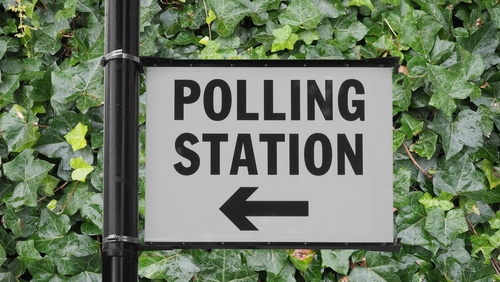
Page contents
In July 2024, the UK saw a Labour government be voted into power for the first time since 2010.
Although it may be a while before we see another general election, there are local elections taking place in May 2025 where many people, including those living with dementia, will want to demonstrate their right to vote.
Can people with dementia vote in an election?
The Mental Capacity Act 2005 outlines that having a cognitive impairment does not automatically disqualify someone from voting. This means that if they choose to, people living with dementia have the legal right to vote, no matter the stage of their condition.
Furthermore, The Mental Capacity Act 2005 emphasises the importance of supporting individuals with dementia in making decisions based on their identity. So if a person living with dementia needs support to cast their vote, this must be done in a way that represents the individual’s values, preferences and who they are as a person.
However, even with the legal right to vote, it doesn’t mean that the process is free of challenges for people living with dementia.
How does dementia affect a person’s ability to vote?
In the article ‘Dementia Voices Matter’, Evolve Care Group explores the important topic of voting rights and the challenges faced by individuals with dementia, including how a person living with the condition may experience the voting process itself and the potential for manipulation.
“Imagine if…
“You are voting via postal vote, a piece of paper with boxes, words, and logos that you don’t understand being put in front of you, a pen that you don’t recognise but is placed in your hand. Someone then gently supporting you, guiding you to hold the pen and mark the paper where you want to because this is your choice.
‘Choice to participate in democracy as an equal citizen’
“This could be encouraging independence, engagement and a person-centred approach, giving someone on a Dementia journey the choice to participate in democracy as an equal citizen. But what if the person offering support sees the vulnerability as an opportunity? What if that person voted Labour but the person they are supporting is, and has always been, a staunch Tory?
“There could be a question of integrity, as the supporter could take advantage of the situation and influence the person to vote differently. What if you simply scribbled an X in the wrong box? You wouldn’t understand, you wouldn’t know you have voted for an opposite party, something that is part of your identity.
“Voting is a fundamental part of democracy, supported by principles of equality and non-discrimination. The challenge is to ensure that the person voting with Dementia is protected.”
How to support a person with dementia to vote
- Make sure they want to vote – choosing not to vote is an equally legitimate democratic decision as choosing a party. It may be difficult to have the conversation if someone is in the later stages of dementia, but it’s worthwhile to find out more about what they’d like to do if possible. Perhaps if they have voted for one political party throughout their lives, ask questions around this to find out if their thoughts are still the same, rather than asking directly if they want to vote.
- Register to vote – make sure you, or your loved one, are on the electoral register for your local area if you do want to vote. You can register to vote in person, by post or by proxy, so consider which option will best suit your needs and preferences. Proxy can be a good option, but bear in mind that you’ll need to provide a legitimate reason for why you can’t vote in person – which you don’t need to provide if you apply to vote by post. You’ll also need ID, such as a passport or a driving licence, to vote.
Adaptations
- Make arrangements for the day – there are a number of adaptations that can and should be made to make sure voting is accessible for every person who wants to vote, including those living with dementia:
- Have someone accompany you/the person living with dementia to help you to vote
- Access to equipment or aids, such as a magnifying glass or a lower desk for someone in a wheelchair, for example
Most polling stations should be equipped for adaptations, but if you are worried you could call ahead or visit your local polling station to make sure they can accommodate any specific requests. They will be happy to help and make sure every person is able to cast their vote.
- Chose an advocate carefully – whether it’s a family member or a member of staff if the person is living in a care home, advocates can be crucial in making it possible for a person living with dementia to vote, but as we discussed above, choosing the right person who will represent the wishes of the person is just as important.
Most people with dementia do not vote
Emphasising the importance of advocating for people with dementia to vote, especially those living in care homes, Evolve Care’s article explains:
“Despite their right to vote, the reality is that most people with a dementia living in care do not cast their vote. Given that many of them were active voters before their diagnosis and that voting should still be important to them, this brings up some important questions: Where is their vote? Who is thinking about and protecting them? Who in our society is advocating for social care and protections that our elder generation needs – and let’s not forget that one day, our elder generation will be us.
“It’s up to us, as a society, to ensure that their voices are heard. We need to find ways to support their participation in our political system, protecting their rights and ensuring that their interests are considered in the decisions that shape our society.” You can read the full ‘Dementia Voices Matter’ article here and find out more about Evolve Care Group by visiting the website.


